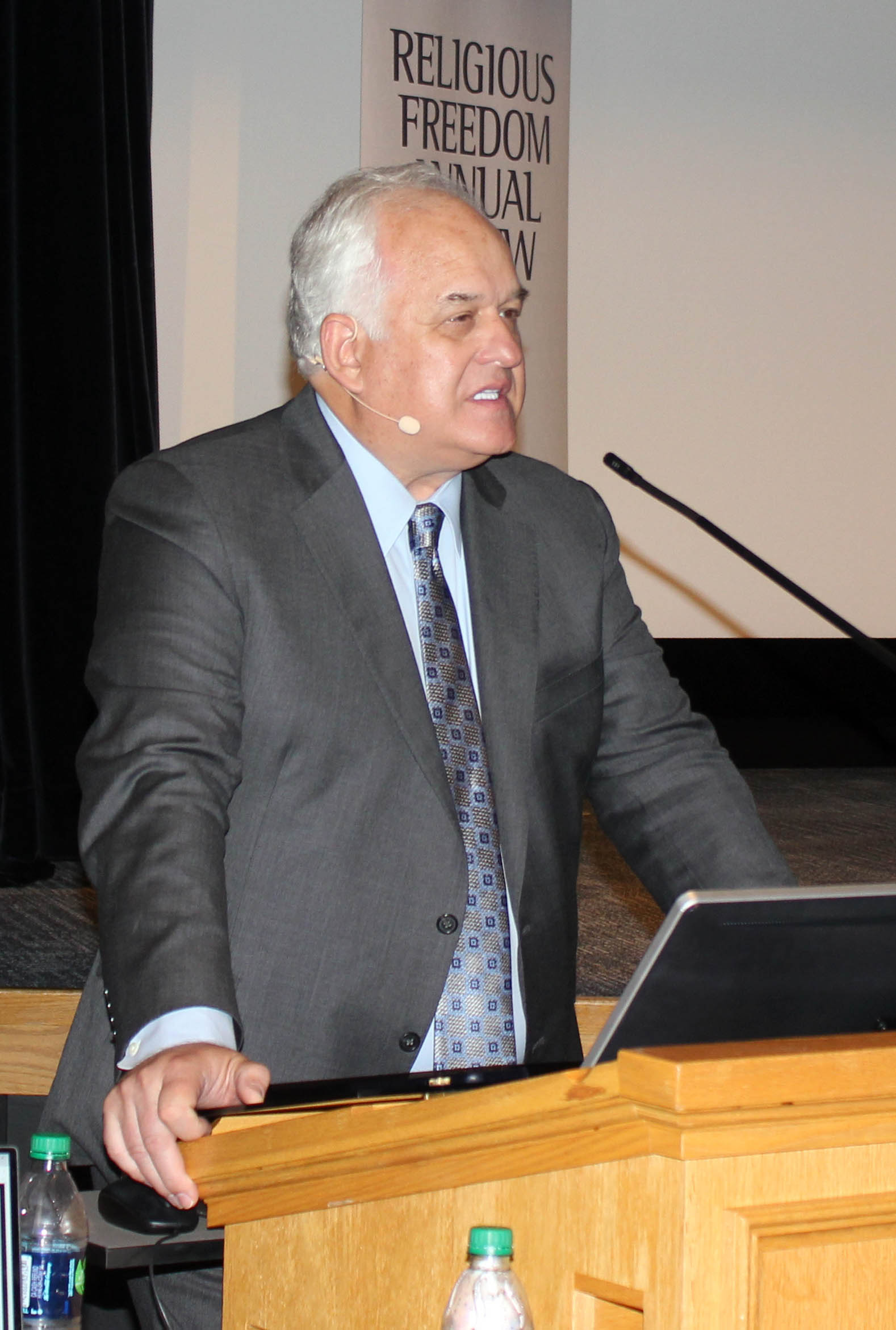Thursday General Session: Bridging Cultural and Personal Divides: Creating a Culture of Civility and Respect – Brett Scharffs, Tom Christofferson, Kristen Looney

by Gabriell Sabalones, 2018 ICLRS Student Fellow
The speakers for the final plenary session of the 2018 Religious Freedom Annual Review were Brett Scharffs, BYU Professor and Director of the International Center for Law and Religion Studies, Tom Christofferson, author of That We May Be One: A Gay Mormon’s Perspective on Faith & Family, and Kristen Looney, Director at the Religious Freedom Center of the Freedom Forum Institute.
Brett Scharffs, in his remarks drew on various examples from the Book of Mormon of individuals who had been persecuted on account of their religious beliefs including Samuel the Lamanite, who was shot at with stones and arrows as he preached from the top of a wall, those being mocked by the people in the great and spacious building from Lehi’s vision of the Tree of Life, and the prophet Abinadi, who was burned alive for having preached to the people. Scharffs observed that some incorrect conclusions may be drawn from these examples. One might conclude that we need to constantly be on the offensive or defensive; “throwing stones, literal or psychological.” But Scharffs asserted that there’s no need to be intimidated by such tactics. His conclusion was that there is a way to be tolerant without embracing the ideas of those with whom we disagree.
In his comments, Tom Christofferson recounted his experience reconciling his identity as a gay man with his faith, at one point concluding, “If I can’t be gay and Mormon, then maybe I could be gay and happy.” He asked the rhetorical question, “What is our responsibility toward those who we believe to be wrong but who are desperately in need of love and outreach?” Although he himself eventually sacrificed his life with his long-term partner to return to the church, he posed the question to the assembly, “Can we meet their needs without expecting them to change, but expecting their and our hearts to change because we refuse to call our brother an enemy?” He cited an NPR article describing Justice Scalia and Justice Ginsburg’s “unusual friendship.” Although they were rarely on the same side of the issues, the two shared an uncommon bond. “We were best buddies,” Ginsburg said. Christofferson argued that the differences of opinion we may experience need not destroy our relationships with and compassion for others.
Kristen Looney used her time during the session to help attendees learn how to dialogue with others about topics on which they disagree. She armed those in the assembly with “the five skills of dialogue.” Skill number one is an open attitude. Looney explained that the way someone goes into the dialogue makes a difference. Effective dialogues begin from a place of openness and wanting to understand the other side’s narrative. The next skill is listening. Looney emphasized the importance of good listening skills, including focusing on the other person and being aware of body language, in good dialogues. The third skill she highlighted was speaking. Speaking, she explained, is different than talking. Effective speaking is being able to articulate well your point of view. The fourth skill is responding or asking response questions. Looney observed that asking questions is the best way to both fully understand the other person’s side as well as make sure they feel that they’ve been heard. The final skill is reflecting. Looney explained that after a dialogue concludes, it is important for both parties to continue pondering over the things that were said.